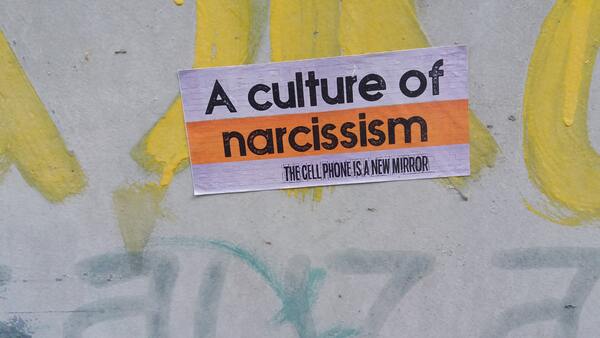Can someone who is narcissistic love their kids? It’s an uncomfortable question, isn’t it? Having children with a narcissist or being the child of one makes it particularly painful. In the end, can they really give a child the nurturing, sympathy, and unwavering admiration he or she needs to thrive?
Can they still raise their child well despite their troubling personality? Do Narcissists love their children as most parents do? It is hard for Narcissists to love and educate their children like other normal parents.
The Effects Of Narcissistic Parents On Their Children
Becoming Hypercritical Of Your Performance
Narcissistic parents may criticize and obsess over their children’s performance starting at a young age. No matter how hard you try, the effort by itself will never bring you love.
A lifetime pattern of self-doubt and perfectionism can result when a child only experiences love when they are succeeding.
Shaming Your Preferences
When it comes to preferences, narcissists find it impossible to comprehend why other people differ from them. They tend to express their genuine belief that their opinion is the best through both subtle and overt insults.
Prohibiting You From Trying Certain Activities
Narcissists may have strict rules for what you can and cannot do because they want their kids to act and think like them. These regulations might cover anything from participating in extracurricular activities to maintaining friendships with particular friends.
Giving Inappropriate Ultimatums
In order to scare people into giving them what they want, narcissists frequently use intimidation. These damaging statements will be taken literally by a young child.
If the parent never follows through on their threats, the child may eventually come to the conclusion that they cannot trust them. They might also develop secretive and dishonest behavior if they don’t want their parents to know what they’re up to.
Dumping Their Emotional Baggage Onto You
The children of many narcissistic parents are used as friends, patients, or therapists. To encourage this behavior, they may even compliment the kid for being such a “great listener.”
But even if they are mature, kids lack the emotional maturity to deal with adult issues. Instead of worrying about their parents’ feelings, they should be concentrating on their own needs and development.

Attempting To Control Every Action
People who are dependent on narcissists love it. It gives them a sense of exclusivity, significance, and irreplaceability, all of which satisfy their egos.
A developing child can be extremely dangerous to a narcissist because of this. They are terrified of your capacity for free will and independence. They don’t care that you make a mistake; they only care that their ego won’t take a beating.
Narcissists may try to manage your finances, apply for jobs on your behalf, control your relationships, and even violate your privacy in an effort to slow or even stop your growth.
Seeking Constant Approval
Although they appear to be very arrogant, people with narcissistic personality disorder actually conceal profound feelings of inferiority. Narcissists are painfully insecure, although this feeling may only be apparent to close family members.
Can A Narcissist Be A Good Parent
A good parent cannot be described in one way by everyone. However, most people concur that loving, tender, and kind parents are traits of good parents toward their families.
When their child make mistakes, they may teach consequences, but they don’t try to humiliate the child for being a bad person.
Therefore, reflective, inquisitive, and humble traits are shared by good parents. They acknowledge their shortcomings in their roles but work hard to give their kids a good life. They make a concerted effort to establish limits and benchmarks for success despite the fact that they are aware they cannot control the child’s behavior.
Good parents are concerned about their children’s welfare. They respect their children for who they are, even if they don’t always agree with their choices.
The majority of the time, narcissists aren’t even vaguely aware of the effects they have on their kids. They frequently overestimate their skill. They actually frequently think of themselves as parenting authorities! According to them, the world would be a far better place if everyone else raised their kids the way they did!
Sadly, narcissists struggle to accept responsibility for their actions when they falter. They don’t actually recognize their errors as mistakes, which is why this occurs.
Instead, it is always someone else’s fault—the blame is automatically placed on the other parent, the child, the teacher, the day of the week, the neighbor’s dog, etc.
Additionally, narcissists aren’t naturally respectful of their offspring. They frequently experience anger, disappointment, or embarrassment as a result of them. If the child’s behavior consistently deviates from their expectations, they might completely cut them off.
What To Do About Your NPD Parent
As safe as a minefield is to a child, an NPD parent is not. Prior to being able to leave for a life of your own in childhood, you had no choice but to “go along with the program.” You have a whole new set of options and obligations towards yourself as an adult, including refraining from letting your NPD parent continue to cause havoc in your life.
You must ‘handle’ your NPD parent, or they will continue to manhandle you. To sort through and recover from the abuse, it’s imperative to establish and uphold healthy boundaries.
Most victims of narcissistic abuse find that, if they choose to have any contact with an NPD parent at all, they must control the volume, regularity, and nature of that contact. Many people decide to go No Contact to avoid recurring abuse.
Others choose Low Contact, especially if there are elder care issues that the abuse survivor is providing, or they want to maintain contact with other family members, which necessitates at least some contact with the It’s crucial to be clear about your reasons for wanting to maintain contact with the NPD parent.
You should also think about how you will react to any resistance you might receive if you decide to go with No Contact or continued mistreatment if you choose to keep Low Contact with them and possibly other members of the extended family.
You must be certain and steadfast in your choice, which entails keeping in mind what you stand to gain from having little or no contact with your family and developing a plan for dealing with any of them who might try to manipulate you into returning to the abusive family dynamic.
















